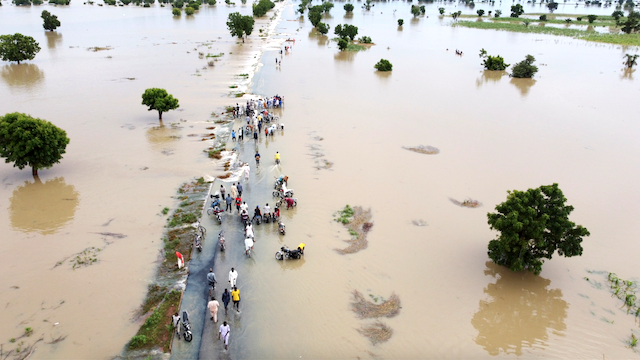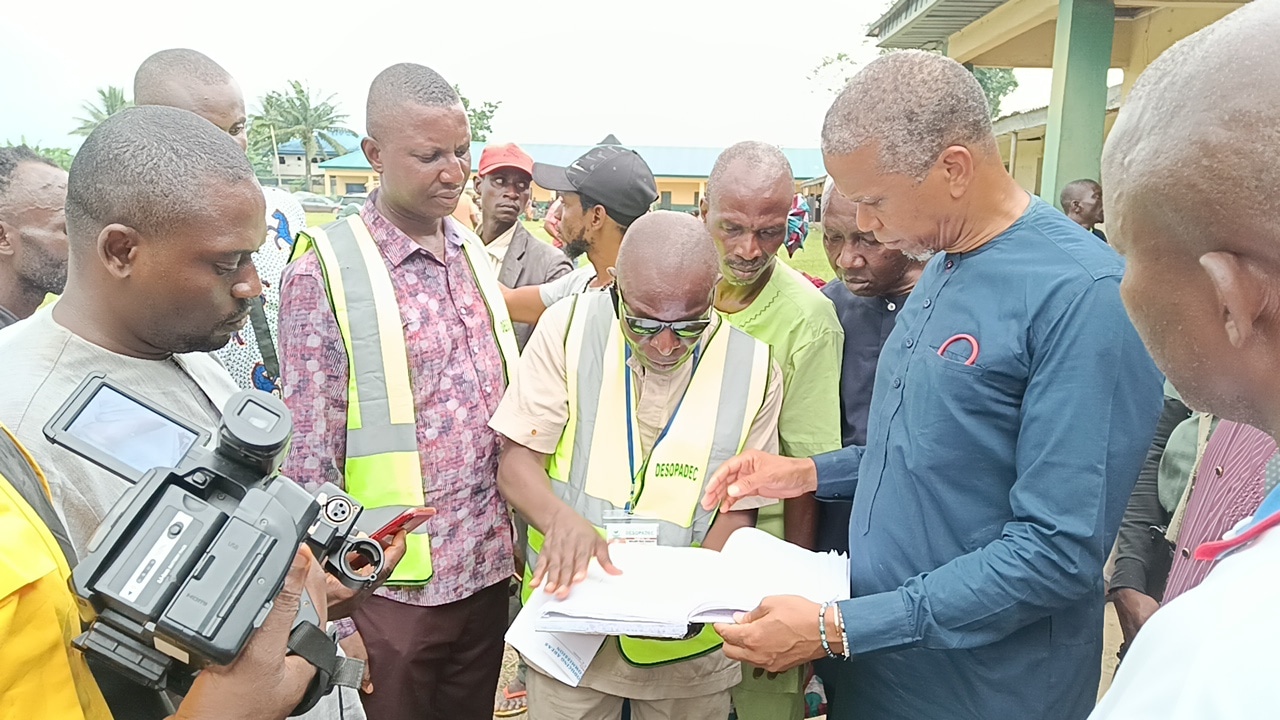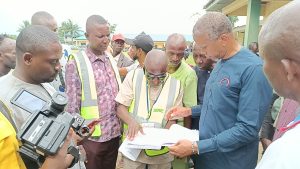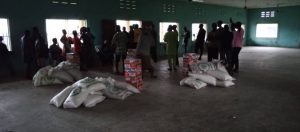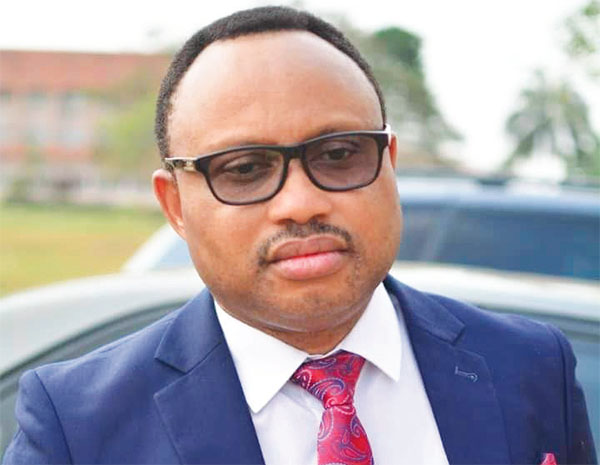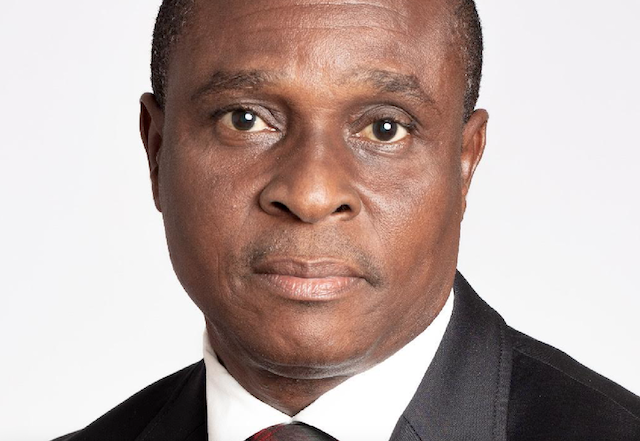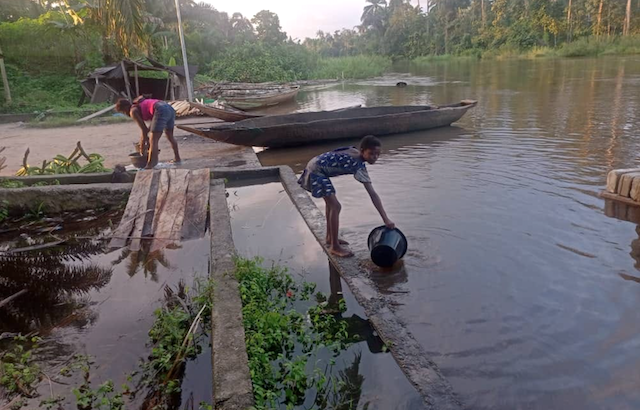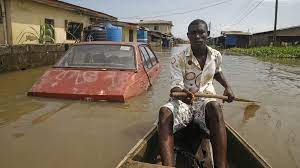One of Nigeria’s popular artists sang a prophetic line of “blood and tears” to drive home the kind of violence that will continue to be unleashed by those in power against hapless citizens. But this is not the direction of this topic. This is about tears and blood caused by incessant disasters and the absence of resilience models to cope with urban drift and population increases. However, when viewed against the concept of the social contract, citizenship rights and the values guaranteed by the constitution under which governments operate, there is a causative relationship traceable to the government in this instance. Sorrows, pains, blood and tears flow each time disaster occurs, whether man-made or natural. Greater also is the pain in the aftermath of a loss that has no mitigation and material recovery in place.
Warnings over extreme weather conditions resulting from climate change have been ongoing for the past two decades. Incidentally, it does not appear that Nigeria is mapping the geography of her vulnerabilities and taking steps to tackle the increasing flooding of cities across Nigeria with its attendant destruction of lives, property and farmlands. Lagos is the only known city to put in place a Resilience Office to deal with the problems of flooding and other environmental problems.
Floods Figures
Statistics show that 363 lives were lost to flooding in 2012, Nigeria lost N2.6 trillion to flood disaster, 7 million people were reportedly displaced and about 597,476 houses were damaged.. A decade after, in the current year, official figures indicate that 2022 may yet record over 40% loss against that of 2012. It was also reported that Nigeria’s worst flood disaster was 40 years earlier.
Already death resulting from floods this year is said to be, at least, 600 people. Yet October and the rest of the year have not been fully accounted and the heavy rains forecast still lies ahead. About 1.4 million people had been displaced and 90,000 homes were either partially or completely destroyed by the floods, according to government officials.
Permanent Secretary, Ministry of Humanitarian Affairs, Disaster Management and Social Development, Nasir Sani-Gwarzo put the number of injured persons at nearly 1,550 while 44, 099 houses were declared, partially damaged, and 45,249 homes were totally damaged. In addition, 76,168 hectares of farmlands were partially destroyed, while 70, 566 hectares of farmlands were completely destroyed.”
Fire Figures
Fire service statistics show that over 50 market fires which occurred in 18 months across Nigeria, between 2020 and 2021, resulted in an economic loss of about N41.5billion in nearly two years. Lagos is the worst-hit city. About 80 deaths due to fire were reported between 2019 and 2021. These figures will increase astronomically if deaths from fuel tanker explosions, car accident fires and so on are included. And for the government, these are just numbers. Far more people die from these accidents than from communicable diseases and for many years now, the WHO now categorizes accidents as NCDs (Non-Communicable Diseases) and says that far more deaths are reported in accidents than from communicable diseases.
Governments Responses
The ecological Project Office (formerly Ecological Fund Office) reports to the Office of the Secretary to Government of the Federation, National Emergency Management Agency (NEMA) under the Ministry of Humanitarian Affairs, Disaster Management and Social Development. Ecology and Disaster get 1% of derivation and federal allocation while 20% thereof goes to NEMA.
The federal government budget for disaster and ecology management in the current year is 2.32% of derivation funds of the revenue allocation formula. For the first half year, this amounted to N336billion. This amount covers a small fraction of the 2012 flood damage loss estimated at N2.6trillion. Sadly, the current year’s economic loss is projected to surpass that of 2012 by about 45%. These budgetary allocations are also distributed to States and local governments. The States have their own budget which builds from the federal allocation.
For instance, in Ekiti State in South West, an unsubstantiated cost running into billions of naira was said to have been spent to protect three local government areas at risk of flooding, which reportedly reduced the impact of the recent flooding. The Katsina State government announced N247,819,025 for disbursement to no fewer than 680 victims of the Katsina central market fire in 2021. Similarly, in 2016 Rivers State government gave N200million to victims of the Port Harcourt Timber market fire to help rebuild their shops gutted by fire. All these responses and budgetary provisions have no known risk or resilience model backing them.
Why so many destructive floods, fire
Destructive flooding in Nigeria is traced to heavy rainfall and worsening climate changes. Deforestation, improper agricultural practices, poorly designed drainage channels and structures. Existing drainages also suffer from inadequate maintenance regularly blocked by debris from flood waters as well as the construction of buildings in flood plains.
Earthquakes have not been reported in Nigeria, except for landslides from erosion and other ecological disasters. However, several fire outbreaks, particularly in markets, public buildings and homes are essentially due to negligence – either by the government or by individuals.
Statistical Analysis of Fire Outbreaks in Homes and Public Buildings published in the International Journal of Engineering Research and Advanced Technology (IJERAT) in 2018 by Adekunle Umanah, et al shows that “most fatal fires in homes often start in a bed, sofa, other loose fittings or clothing. The homes where fatal fires occur are rarely protected by smoke detectors.” The authors also identified arson as the “most common cause of fires in public buildings”. The majority of home fires and market fires have no insurance or any risk transfer mechanism.
The authors’ study of Lagos State and their findings are consistent with established fire trends; 52% were not attended by the fire brigade and had no insurance payment, 18% attended by fire service but no insurance cover, 22% attended by the fire service with an insurance policy in place while 8% not attended by fire service but insurance was in place.
The experts further noted that fire safety is largely dependent on individual and organizations behavioural patterns. The vulnerabilities to fire exposure, the fire properties of products, the technical fire safety in the building and the fire service’s capability to respond to a fire all form part of the bulwark of response effectiveness or vice versa.
Sustainability Models
The first internal inbuilt model should be an actuarial evaluation of the vulnerabilities and exposures of public assets. This foundation should be laid for any meaningful risk modelling design to take off. And this is not a priority of the government and its institutions.
Catastrophe Bond or Special Peril Insurance
Insurance instruments for large exposures have advanced since the 1990s such that government and insurance institutions partner to protect highly vulnerable assets through special peril insurance and or cat bonds. It is usually a good instrument for sovereign wealth, hedge funds, and other institutional investors. Catastrophe bond (cat bond) is a high-yield debt instrument issued by a State, City or reinsurance company. This is then purchased by high-net-worth capital market investors. On the strength of this, investors lend money to the issuer over the bond’s tenor at maturity or specified event trigger. Cat bonds are highly sophisticated risk-linked securities, built around models that establish any geography’s natural catastrophe exposures. The entrance of the African Trade Insurance Agency and the existing African Reinsurance Corporation and Continental Reinsurance Company should have ensured appropriate modelling of cat bonds related to Nigeria’s pattern of natural disasters like extreme flooding.
A portion of the budgets meant for national emergency and ecological disaster responses could be used to purchase special peril insurance by Federal and State Governments to reduce government exposures and improve accountabilities. At the same time, cat bonds may be issued and spread the risks caused by disasters such as extreme flooding and large-scale destruction. Obviously, this would require a political will and building it into our national risk protection and insurance philosophy. Notwithstanding, the government still requires to pull its weight during emergencies through budgetary provisions.
Government & Traders Collabo
However, the causes of fire disasters are mostly man-made as established in studies. Therefore, insurance will certainly accept these risks while also government takes the part not covered particularly, market fires. Markets are public assets owned by States and local governments and let to individuals as lockup shops. So while the government takes insurance for the infrastructure, the individual insures content. But where individuals or groups decide to build and operate markets, then the responsibility for insurance falls on such owners.
The model for market fire insurance would certainly differ owing to the identified ownership types. Governments should insist on traders purchasing insurance rather than committing taxpayers’ money to lift individuals who fail to take insurance. The more government dips its hands to dish out compensations, the more it encourages dependence on the government instead of promoting prudence in resource management.
It smacks of imprudence when government fails to purchase insurance for public assets such as markets even when legislation makes it mandatory. It stretches to reckless spending to commit taxpayers’ money to substitute insurance claims. The amount of money spent on the whims of States’ governors for political grandstanding is adequate to pay premiums for its assets. On this basis, it can make the acquisition of lockup shops and shades conditional on the purchase of relevant insurance.
How insurance and fire services can engage
Funding for fire service is also guaranteed under the public building insurance provision in the Insurance Act 2003. Insurance companies are required to remit to Fire Service 1% of the premium earned under this compulsory insurance. Enforcement for compliance by the parties involved has not commenced.
Certainly, the fire service, the building agencies and insurance companies may consider a joint campaign to inform, and educate Nigerian residents for increased awareness to change behaviour. Experts also recommend training for school children as “an obligatory part of all schooling”.
For public buildings, education and training targeting occupants, employees and facility managers should embrace not only risks and safety measures but also insurance protection.
